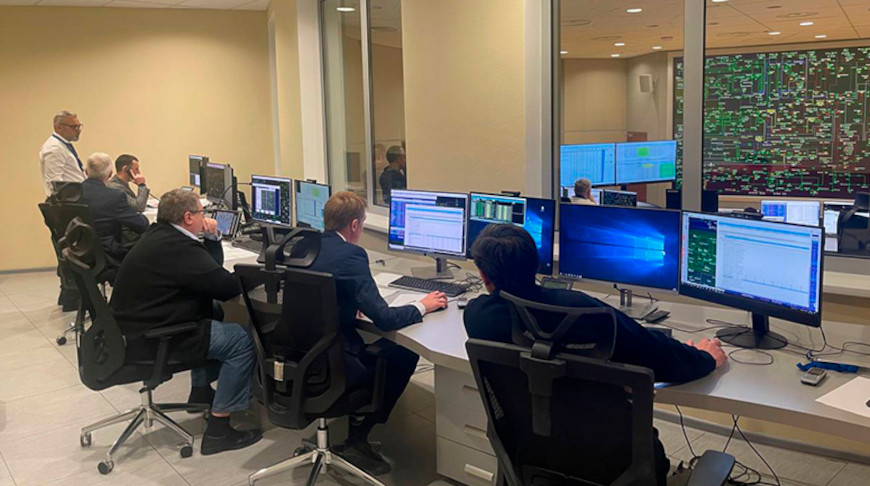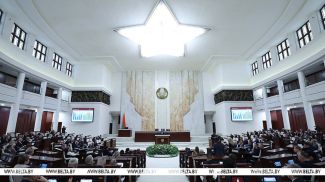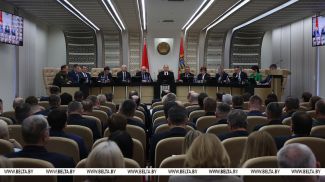
Photo courtesy of Belenergo
MINSK, 1 March (BelTA) – Operators in charge of running Belarus’ and Russia’s power grids are ready to work together to deal with complicated accidents. Their readiness was verified after an international intersystem accident response exercise for operators of the central control center of OAO RAO UES (OAO Unified Energy System of Russia), the central power grid control division of the Russian company, and the Belarusian energy company Belenergo in Moscow, BelTA has learned.
In the course of the exercise the operators practiced how to prevent disruptions of normal work of Russia’s and Belarus’ power grids from growing larger and how to neutralize them. The two power grids operate in parallel and are connected by 330-750kV interstate power lines. The power grids operate with the same frequency. The frequency in the synchronous zone is regulated by the central control center of OAO SO UES (the system operator of the united energy system).
During the exercise the operators used the digital equipment simulator Filin, which is used to train and regularly offer advanced training to power grid operators of the Russian company. This piece of equipment uses a math model of the power grid in order to simulate all kinds of situations the real power grid can experience, including emergencies, taking into account actions of the operators. The system operator’s rapid communication system was also used during the exercise. The use of modern technical solutions helped make the process of dealing with a simulated emergency feel like a real emergency as much as possible.
The scenario of the exercise was built around complicated conditions triggered by a loss of massive power-generating capabilities in Belarus and weakening electric connections to Russia’s power grid. They resulted in overloading in several control points, including one interstate link. Power lines may have been disconnected and Belarus’ power grid may have had to operate on its own if the operators had failed.
Yevgeny Volodin, Head of the Operating Department at OAO SO UES, said that the scenario of an exercise provides for very realistic accidents that power grid operators may encounter routinely. However, the company tries to implement even more complicated events into the scenario, make several accidents overlap each other, and force operators deal with them as fast as they would have to deal with real emergencies. “Such trials are very important because they help the operators with real work and interaction in the course of accomplishing common tasks later on,” the executive said.
Belarusian and Russian power grid operators implemented a set of measures to prevent the development of the accident and neutralize it completely. In particular, orders were cut to increase electricity output in order to neutralize overload at control points and steps were taken to bring disconnected power lines back online.
The exercise was a success. Executives praised the professionalism and cohesive actions of the power grid operators in a complicated environment. “It is every important to constantly perfect the level of interaction. Particularly if power grid operators are in different countries. Our power grids work together from the technological point of view but laws and regulations are slightly different. But the fact should not have a negative impact on the reliability of joint synchronous operation,” stressed Denis Kovalev, Deputy Director General for Operations, Chief Dispatcher at Belenergo.
The power grid operators, who took part in the exercise, confirmed they are ready to ensure stable and reliable operation of Belarus’ united power grid together with Russia’s.













